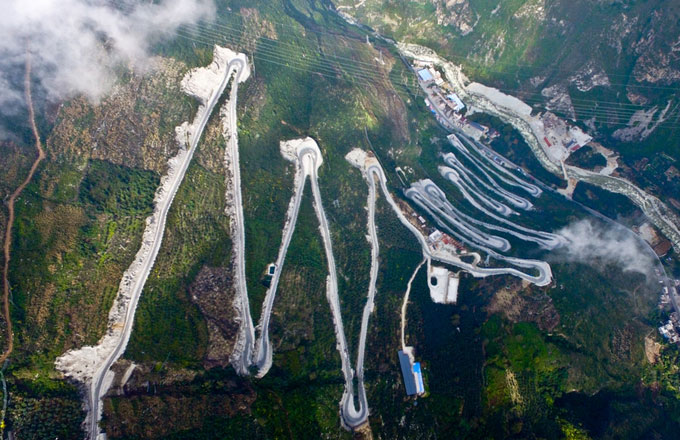Xinjiang improves social stability after attacks
Attacks by separatists, extremists and terrorists have largely been curbed during the past five years in Xinjiang Uygur autonomous region, despite the 2009 riot in Urumqi that left 197 dead, the chairman of Xinjiang said on Saturday.
"The work to maintain social stability has gradually become the norm, which has made the public feel safer and satisfied," said Nur Bekri, chairman of the Xinjiang regional government, during his report at the first session of the 12th Xinjiang Regional People's Congress. He delivered the report in the Uygur language.
He said public security forces were strengthened in villages and communities last year. Authorities also increased management of the Internet and new media.
The regional government allocated 9.34 billion yuan ($1.5 billion) to the public security sector in 2012, a 23 percent increase compared to the previous year.
"Maintaining social stability should be seen as the top responsibility in the future as it's the foundation of development," Nur Bekri said.
"Xinjiang government is determined to break up terror plots during the planning stage, before any action has been taken."
Xinjiang witnessed several terror attacks in 2012. On June 29, six men tried to hijack a flight from Hotan to the regional capital of Urumqi, injuring 11 people on board. But the crew and passengers foiled the plot.
Two hijackers were injured and later died in the hospital. Three were later sentenced to death and one was given a life sentence.
On Feb 28, nine terrorists armed with knives attacked a crowd in Kashgar prefecture's Yecheng county, killing 13 people. Seven terrorists were shot dead at the scene and one died later from injuries, according to the prefecture's information office.
A local court sentenced the ringleader to death in March for running a terrorist organization, leading terrorist attacks and murder.
The region achieved 12 percent growth in GDP in 2012, and the growth rate is expected to be above 11 percent in 2013.
The development of the region relies on better-educated people, Nur Bekri said.
The admission rate at senior high schools in the less developed southern prefectures of Kashgar and Hotan, and Kizilsu Kirghiz autonomous prefecture, has increased to 60 percent in 2012 from just 26 percent in 2008.
cuijia@chinadaily.com.cn
























